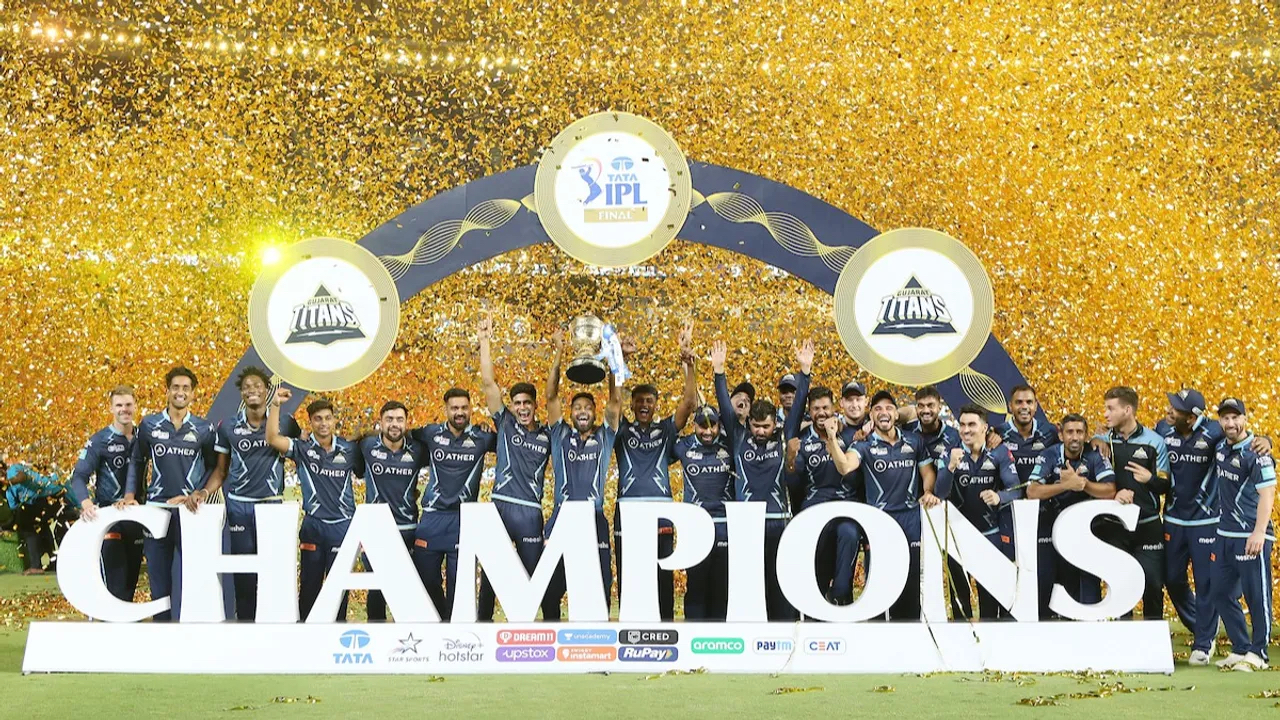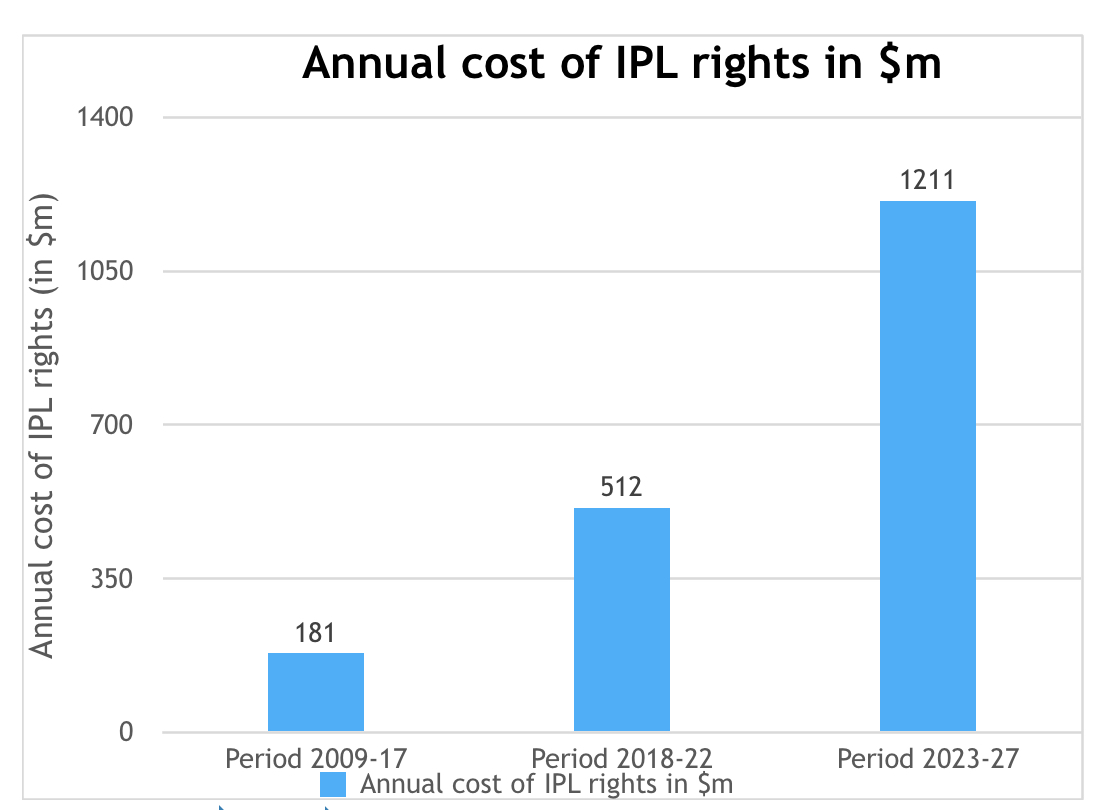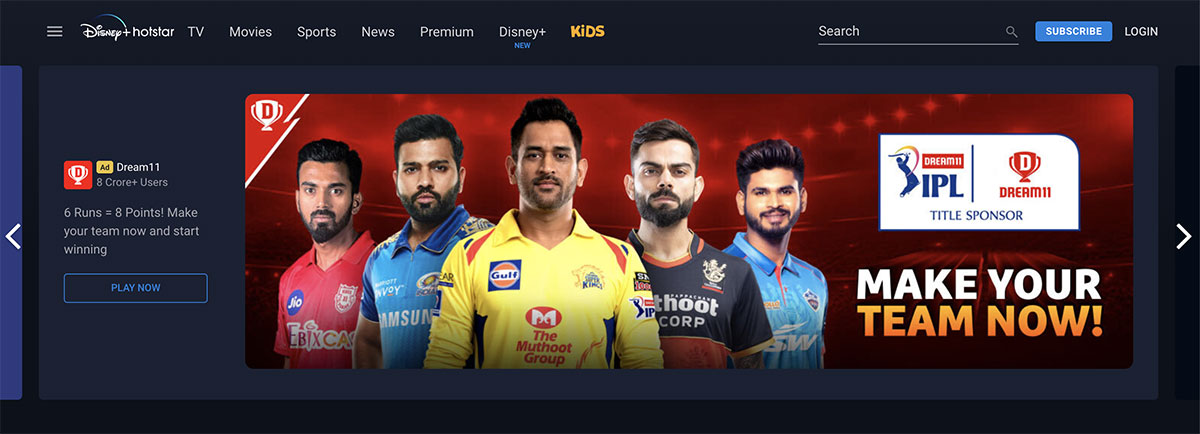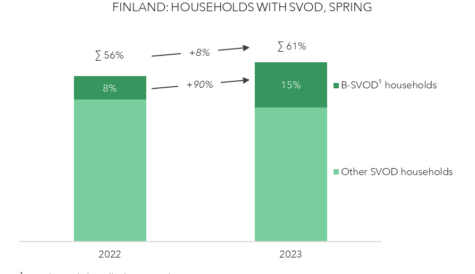
After more than 40 years of operation, DTVE is closing its doors and our website will no longer be updated daily. Thank you for all of your support.
Increased IPL rights value presents challenges for DisneyStar and Viacom18
The Indian Premier League (IPL) was already one of the most valuable sports competitions on the planet, but this week things took things to another level when it was reported that the tournament’s broadcast rights have more than doubled in value.
In a change from form, the Board of Cricket Control in India (BCCI) has split the rights between TV and digital, with DisneyStar picking up the former and Viacom18 the latter. This is the first time that the IPL will be split across two separate entities.
Both deals combined are set to be worth INR44,075 crore (US$5.64 billion). DisneyStar will reportedly pay INR23,575 crore (US$3.01 billion), based on a fee of INR57.5 crore (US$7.36 million) per match.
The fee for the digital rights is more than 10% higher than what Star paid for the overall rights in 2017 (prior to its acquisition from Disney as part of the US$71 billion purchase of 21st Century Fox). Viacom18 will pay INR20,500 crore (US$2.62 billion), based on INR50 crore (US$6.41 million) per match.
Research house Omdia estimates that the per match cost of the IPL for the period 2023-27 will reach US$14.8 million. This is second only to the NFL at US$17 million per match, but significantly higher than the English Premier League (US$9.3 million), Spain’s LaLiga (US$2.9 million) and the NBA (US$2 million).
In total, the rights are already worth more than double the INR16,347.5 crore (US$2.55 billion) that Star paid in 2017 – and the BCCI will make even more money from an additional package of domestic rights and overseas rights.
Though the BCCI has made a fortune from the rights which continue to demonstrate their value with hundreds of millions of viewers, the broadcasters who have purchased them face multiple challenges if they want to make their money back.
Monetisation difficulties
The IPL is undoubtedly the premiere sports property in India.
This is something noted by Constantinos Papavassilopoulos, principal analyst, TV & Online Video Intelligence at Omdia, who points out that “around 600 million people every year in India are watching IPL matches,” and that “the IPL is, by some distance, the largest sport event in the country as well as an event of major importance for the Indian society.”
By extension, the analyst says that “the acquisition of IPL is a matter of prestige,” for broadcasters in the country, with everyone from Google to Amazon and Reliance seemingly interested in picking up the rights at one point or another.
The IPL is a kingmaker – if you have the rights, you are guaranteed eyes on your platform be it linear TV or OTT.
However, it is becoming increasingly clear that we are on the precipice of another recession. While I have previously looked at what this means for the UK DTC market, this is an economic situation which will have ramifications across the globe.
India is no different, and though it is a rapidly expanding market with increasing consumer spending power, the cost of living crisis will also be felt in the South Asian nation. Combined with extensive competition across all forms of media and entertainment in India, there have been doubts surrounding the monetisation of the IPL regardless of its popularity.
Papavassilopoulos states: “It has been widely circulated in the Indian media that in case the cost of acquiring the TV and OTT rights goes over US$4 billion, it will be increasingly hard to recoup it via any monetisation outlet (subscription, advertising, merchandise, sub-licensing etc.).”
The analyst goes on to estimate that the total revenues for DisneyStar during the previous rights cycle (2018-22) were around US$500 million – and this was across both TV and OTT rights.
“The fact that two separate entities won the TV and OTT rights might logically accentuate the fears about non-recouping the cost of rights,” Papavassilopoulos says.
Disney pays more for less
When DisneyStar had a vice-like grip over the IPL broadcasting rights, it was able to promote synergies and cross-sell its products. It used its Star broadcasts to promote Disney+ Hotstar and vice versa.
From 2023 onwards though, the company will be paying significantly more money for the TV rights alone.
The Disney streaming service could become the biggest victim of the BCCI’s decision to split the rights and this could have major implications for the streamer globally. As Papavassilopoulos notes, Disney+ Hotstar makes up more than a third (50.1 million) of the total Disney+ subscriber base, while the Mouse House directly attributed half of its Q1 2022 adds (7.9 million) to Disney+ Hotstar.
Embattled CEO Bob Chapek – who last week fired Disney’s top TV executive – said that the company was confident of maintaining streaming growth in India with or without the IPL, but Papavassilopoulos does not share this sentiment.
The analyst warns that “Disney+ Hotstar may lose up to two-thirds of its subscribers (25 or maybe up to 30 million) as a consequence of losing the IPL OTT rights.”
He does however provide one note of optimism for Disney, with the fact that IPL monetisation still favours TV over OTT.
“Looking at the advertising revenues alone, the TV rights have brought on average for the last five years, six to seven times more money to Disney Star than the OTT rights,” Papavassilopoulos says. “It is expected that even in the next three years, IPL monetisation will still strongly favour TV with a split of TV:OTT around 80% to 20%.”
The analyst also points out that Disney’s increasing focus on local content production in India – with 100 Indian originals to be released by the end of 2023 – should serve to offset some of its SVOD losses.
A statement of intent from the new-look Viacom18
What then for Viacom18?
The broadcaster is currently undergoing rapid change thanks to an INR13,500 crore (US$1.8 billion) investment from Bodhi Tree Systems, a newly-formed venture set up and led by James Murdoch’s Lupa Systems and former Disney India executive Uday Shankar.
In addition Reliance Projects & Property Management Service ltd. (which owns 51% of Viacom18) said that it will invest a further INR1,645 crore (US$215 million) into the media entity, while Paramount will remain a stakeholder.
Announcing the partnership, a joint statement from Murdoch and Shankar said that it plans “to reshape the entertainment experience across more than 1 billion screens,” while creating “one of the largest TV and digital streaming companies in India.”
And buying the OTT IPL rights is certainly a big statement from the company as it looks to become a streaming leader.
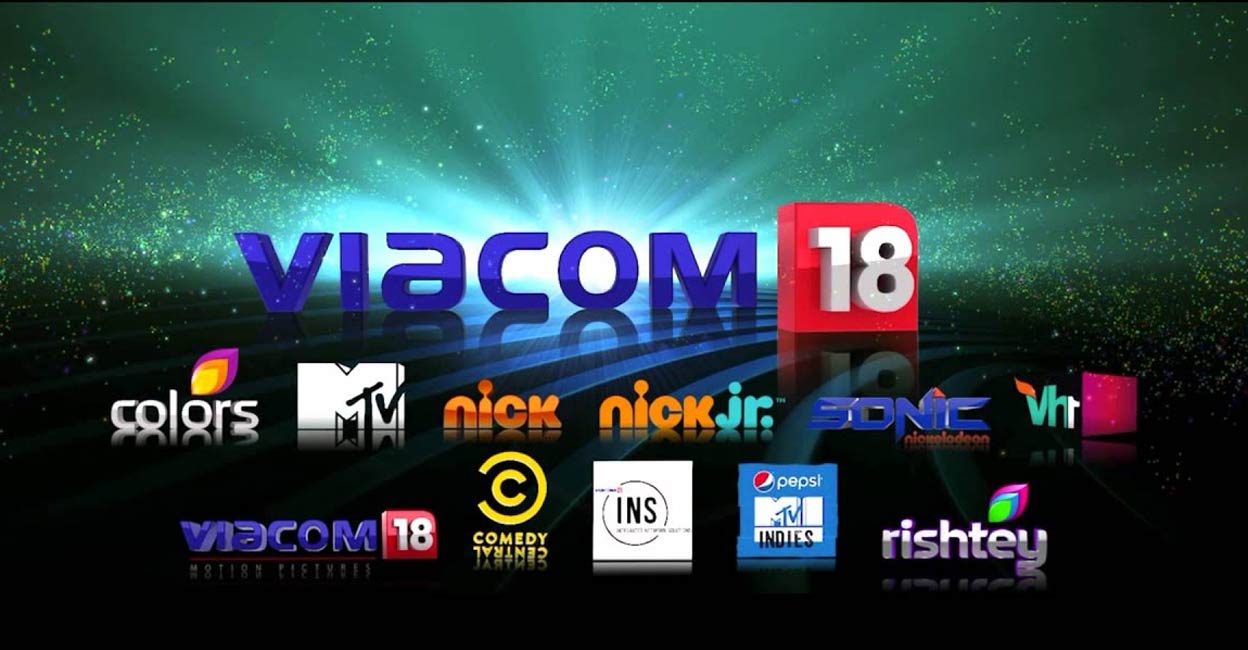 “The investment in premium sports properties clearly signals a strategy focusing more on using sports as a strategic content asset to support the growth of the company’s online video business,” Papavassilopoulos says. “More importantly, the IPL can significantly help the mother company Reliance to leverage the huge subscriber base of Jio, around 450 million 4G subscribers, in an effort not only to reduce churn and to raise ARPU but also to create synergies with Viacom18’s other media properties.”
“The investment in premium sports properties clearly signals a strategy focusing more on using sports as a strategic content asset to support the growth of the company’s online video business,” Papavassilopoulos says. “More importantly, the IPL can significantly help the mother company Reliance to leverage the huge subscriber base of Jio, around 450 million 4G subscribers, in an effort not only to reduce churn and to raise ARPU but also to create synergies with Viacom18’s other media properties.”
The analyst notes that the company has been heavily investing in sports, and has been hiring experienced sports broadcasting execs since Autumn 2021. The IPL will serve as the crown jewel of Viacom18’s streaming business, but it joins a portfolio which already includes LaLiga, Serie A, Ligue A, the NBA and major tennis rights.
Much like when Disney intended for Disney+ Hotstar to coincide with the start of the 2020 IPL season (before both were postponed as a result of the Covid-19 pandemic), Omdia predicts that Paramount+ will launch in mid-2023 to coincide with the start of Viacom18’s IPL deal.
This is by no means the only streaming option for the broadcaster though, with Viacom18 also having Jio TV and Voot Select.
Viacom18 is clearly on a growth-first mission and while it will face the monetisation issues detailed above (particularly given the still-present bias towards TV advertising), the company’s focus is less on making money out of the rights than it is about attracting subscribers to its OTT business.
With the IPL firmly established as the second-most-valuable sports competition on the planet, DisneyStar and Viacom18 are in pole position to capitalise from its popularity and the millions of domestic viewers who will tune in. Whether they can meet their long-term ambitions of growth while spending billions on the rights however will be something to track in the coming years.
